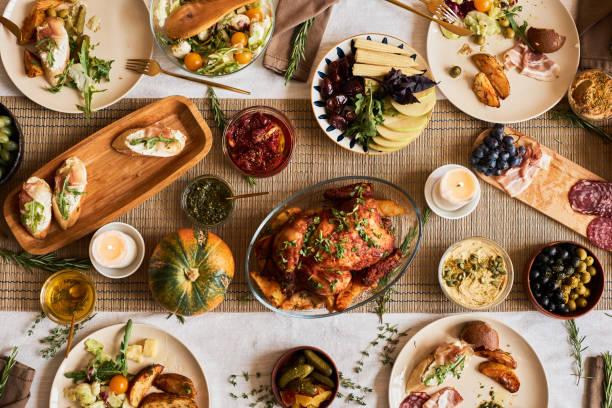
How to Enjoy Holiday Meals Without Overindulging
Share
The holiday season is a time for celebration, and one of the highlights is, of course, the food. From rich gravies and creamy mashed potatoes to decadent pies and endless buffets, it can be hard to resist indulging in all the festive offerings. However, enjoying holiday meals doesn’t have to mean overindulging and feeling sluggish or uncomfortable afterward. With a little mindfulness and some simple strategies, you can savor every bite without going overboard.
First and foremost, it’s essential to approach holiday meals with a balanced mindset. While the holiday spread is undoubtedly tempting, it’s important to remember that it’s not about depriving yourself, but about enjoying the season in a way that leaves you feeling good both during and after the meal. By planning ahead and being mindful of your choices, you can create a healthy relationship with food during the holidays.
One of the most effective strategies is controlling your portions. It can be easy to load up your plate, especially when there are so many delicious options, but the key is to avoid heaping large servings of everything. Instead, try to serve yourself smaller portions of each dish. This allows you to enjoy a little bit of everything without overstuffing yourself. If you feel full before you finish your plate, listen to your body and stop eating. It’s better to leave some food behind than to feel uncomfortable later.
Another helpful tip is to fill up on vegetables. Whether it’s a vibrant salad, roasted Brussels sprouts, or green beans, vegetables are low in calories and high in fiber, making them an excellent choice to keep you feeling full and satisfied. By filling half your plate with veggies, you’ll be naturally reducing your intake of richer, higher-calorie foods. Plus, vegetables provide a wealth of vitamins, minerals, and antioxidants that support overall health.
Staying hydrated is also key to managing hunger and cravings. It’s easy to forget to drink water in the midst of all the festivities, but staying hydrated can help you avoid overeating. Sometimes, thirst is mistaken for hunger, leading to unnecessary snacking or larger portions. Drinking water before, during, and after your meal can help you maintain balance and control your appetite. Herbal teas or sparkling water are also great alternatives to sugary drinks or alcohol.
Speaking of alcohol, holiday drinks can be calorie-heavy and contribute to mindless eating. While it’s fine to indulge in a festive cocktail or glass of wine, consider alternating alcoholic beverages with water or a non-alcoholic option. This will help you pace yourself, prevent overindulging, and keep you from feeling sluggish later in the day.
When it comes to the actual eating experience, taking your time and savoring each bite is key. Eating slowly allows your body the time it needs to recognize when it’s full, helping you avoid overeating. Try to focus on the flavors, textures, and aromas of your food, and really enjoy the experience rather than rushing through the meal. By practicing mindful eating, you’re more likely to feel satisfied with smaller portions.
Lastly, don’t forget to keep moving. After a hearty meal, instead of collapsing onto the couch, consider taking a walk or engaging in light physical activity. Not only will this help with digestion, but it can also give you a mental break from the food and the festivities, leaving you feeling energized rather than stuffed.
In conclusion, enjoying holiday meals without overindulging is all about balance. With a little mindfulness, portion control, and hydration, you can fully enjoy the delicious flavors of the season while staying healthy and feeling great. The holidays are a time to celebrate, and by making thoughtful choices, you can savor every moment and every bite without any guilt or discomfort.
Get more knowledge about eating healthy, please refer to The Christmas Side Dish Cookbook.
